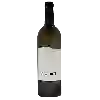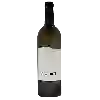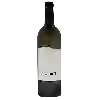
Château de CassaigneFloc de Gascogne
This wine generally goes well with
Details and technical informations about Château de Cassaigne's Floc de Gascogne.
Discover the grape variety: Moscatel rosado
It is said to be a cross between the diagalves and the Muscat of Alexandria obtained in Portugal. It can be found in Peru, Chile, Brazil, Argentina, Portugal, etc. In France, it is practically unknown, certainly because of its late maturity.
Last vintages of this wine
The best vintages of Floc de Gascogne from Château de Cassaigne are 0
Informations about the Château de Cassaigne
The Château de Cassaigne is one of of the world's greatest estates. It offers 1 wines for sale in the of Gascogne to come and discover on site or to buy online.
The wine region of Gascogne
Between the Landes forest, the Garonne and the Pyrenees, the Gascony hillsides cover the Gers dePartment and part of the Landes and Lot-et-Garonne departments. The vineyards occupy the same area as Armagnac, a brandy still produced in the region, but whose volumes have declined in favour of vins de pays (now PGI). Under the influence of a mild oceanic Climate, it is fairly wet in the west, drier in the east, especially in summer. In the west, the subsoil of tawny sands is of marine origin, covered with boulbènes; in the east, it gradually gives way to molasse, a rock resulting from the erosion of the Pyrenees.
The wine region of South West
The South-West is a large territorial area of France, comprising the administrative regions of Aquitaine, Limousin and Midi-Pyrénées. However, as far as the French wine area is concerned, the South-West region is a little less clear-cut, as it excludes Bordeaux - a wine region so productive that it is de facto an area in its own right. The wines of the South West have a Long and eventful history. The local rivers play a key role, as they were the main trade routes to bring wines from traditional regions such as Cahors, Bergerac, Buzet and Gaillac to their markets.
The word of the wine: Dense
Rich and concentrated wine with tight tannins and a consistent body.









